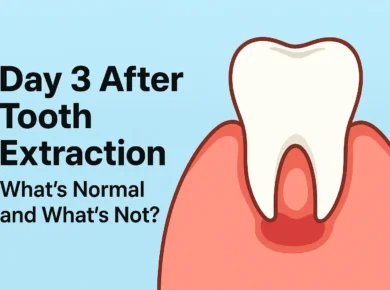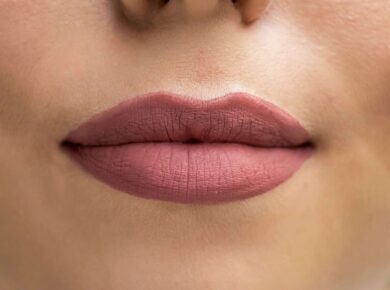You probably have heard about several ways to keep your eyes healthy. These tips include eating right and quitting smoking. But did you know you can also use sunglasses and other safety eyewear? This article will discuss some different ways to protect your eyes. Make sure you follow these tips to maintain the health of your eyes. In addition to these tips, you should also follow a healthy lifestyle to reduce the risk of eye diseases.
Eat Well
You can find a cornucopia of eye-friendly foods at the grocery store or grow them yourself in your garden. They are rich in omega-3 fatty acids, protecting your eyes and preventing cataracts. In addition, these healthy fats are good for overall health. If you’re worried about eye health, you can opt for fish such as sardines, salmon, or mackerel two to three times per week.
Other health benefits of a good diet for the eyes include a reduced risk of cardiovascular disease and diabetes. You should avoid consuming high-sodium, trans-fat, and high-fat foods. In addition, eat plenty of heart-healthy foods and whole grains. Of course, a good diet will not make up for unhealthy habits and lifestyles, so eye health is an essential consideration as you age. Nevertheless, if you have a busy schedule, a healthy diet may not be enough to prevent eye problems.
Eating plenty of green leafy vegetables is another great way to protect your eyes from eye diseases. Vegetables rich in carotenoids protect your retina from damage, and eating legumes will help you get zinc. In addition to these, berries and sardines are good vitamin E and zinc sources. These are essential nutrients for healthy vision. You can also increase your vitamin intake with the use of supplements.
Quit Smoking
Keeping your eyes healthy is not a simple feat. However, if you quit smoking now, your chances of eye diseases will be less than those of non-smokers. If you’ve tried to quit smoking in the past but are struggling, consider these tips to help you stop. Even if you don’t want to see your doctor or get an eye exam, smoking can ruin your vision, mainly when it affects your eyes.
The chemicals in tobacco can damage the macula and reduce the oxygen in your eye. Once the macula is damaged, you can’t see clearly. Furthermore, smoking increases oxidative stress and damage to the retina. While some ways to reverse some of this damage, too much damage will eventually destroy the eye and affect your vision. Another common effect of smoking is a decrease in the production of eye tears. A lack of tears can lead to dry eye syndrome, a condition where the eye is so dry that it causes discomfort and can require specialized treatment.
There are many reasons to quit smoking. Quitting will reduce your risk of developing eye diseases by allowing your eyes to regenerate the cells inside them. Even if you’re still a smoker, quitting can significantly reduce your risk of developing dry AMD. Smoking causes free radicals that damage cells throughout your body, including your eyes. Antioxidants fight these free radicals, which are harmful to the eye. You can take supplements of antioxidant-rich vitamins that can help you stop smoking. However, make sure they don’t contain beta carotene, linked to lung cancer in smokers.
Wear Sunglasses
Whether you’re spending time outdoors or just hanging out in your neighbourhood, wearing sunglasses is essential to protect your eyes. Long-term exposure to sunlight can lead to eye disease, cataracts, eye growth, and even cancer. Pittsburgh Eye Associates offers some tips for choosing the right pair of sunglasses. First, don’t get confused by labels – 100 per cent UV400 protection means that the sunglasses block 100 percent of the harmful ultraviolet rays.
UV radiation from the sun can damage the eye and skin, leading to serious eye diseases later on in life. Even if you’re wearing a quality pair of sunglasses, exposure to UV rays can still damage your eyes. Sunlight exposure can also cause photokeratitis, which causes intense light sensitivity, tearing, and a gritty sensation in the eyes. This condition is not permanent, but it is pretty unpleasant.
Exposure to sunlight can also lead to cataracts, macular degeneration, and pterygium, which are all related to poor vision. Wearing sunglasses can keep your eyes healthier and protect your eyes for longer. Furthermore, it can help you feel comfortable wearing them, essential for your health. You may also find that you are more comfortable wearing sunglasses than expected. A good pair of sunglasses should provide 100 percent UV protection from UVB and UVA rays.
Use Safety Eyewear
When working, using power tools, or playing sports, it’s essential to use safety eyewear. Eye injuries can be prevented with proper eye protection. In the case of an accident, the eye protective gear worn by an individual will reduce the severity of the injuries, resulting in blindness or even amputation. Many types of eye protective gear are available, and you should choose one that meets your needs. It’s essential to choose eye protection that is ANSI-Z87.1 certified for maximum performance.
While most workers assume that safety eyewear is not a viable option, this is not true. Protective eyewear is a must for jobs that expose employees to hazards. It’s not only crucial for workers to wear eye protection when working in hazardous environments, but also to protect their eyes from potentially harmful radiation. Exposure to ultraviolet rays, lasers, and biological waste from the body can all cause eye injury.
Fortunately, there are several reasons to wear safety eyewear, including enhanced vision and clarity. The majority of eyewear includes tinted lenses to block out harmful UV rays. Most safety eyewear also shields your eyes from long-term exposure to sunlight. Most safety glasses have polycarbonate lenses, which offer 99% protection from harmful UV rays. Prolonged exposure to the sun can lead to cataracts, macular degeneration, and even benign eye growths. Hence, awareness of the effects of ultraviolet exposure on the eyes is essential for eye health in the long run.
Look Away From the Computer Screen
To avoid eye strain from computer usage, you need to look away from the screen and sit at a distance of 20 to 28 inches. If you find it difficult to see what you’re reading, move your screen a few inches down and use a matte screen filter. Also, use artificial tears to replenish your eye tears and consider a humidifier. It’s also good to take a 20-20-20 break at least every two hours.
To keep your eyes healthy, you should also take frequent breaks from the computer. The 20/20 rule is easy to remember: after 20 minutes, look away from the screen. This will allow your eyes to adjust to the new distance and prevent eye strain. If you’re not able to take breaks from your computer, you can always walk around the office and stretch your eyes. It’s not just essential for your eyesight but also your overall health.
The same concept applies to your eyes. Whenever you’re looking at a computer screen, blink frequently. This will prevent the dryness of your eyes. In addition to blinking, you should also take an occasional 20-20 break, which allows your eyes to rest. You can also use a matte screen filter to reduce glare. When looking at the screen, remember to take a short break every 20 minutes, and you can even try taking a nap.
Visit Your Eye Doctor Regularly
Annual visits to your eye doctor are vital for the health of your eyes. Young adults should have eye exams every two years, while people over 65 should get regular checkups every year. People with certain medical conditions or a family history of eye problems should visit their eye doctor more frequently. A yearly exam is also beneficial for people at risk for eye diseases. Moreover, an annual eye exam will help you avoid problems with your vision in the long run.
The most important thing to remember while visiting an eye doctor is to bring your eyewear. Eyewear can help your eye doctor determine the right prescription for you. You should also not forget to wear sunglasses after the exam, as bright light can cause discomfort and blurred vision. Lastly, it would help if you asked your doctor a few questions about your health and any allergies you may have. Your doctor will be more than happy to answer any questions you may have.
Your eye doctor will also check for genetic diseases. Many eye diseases are inherited, and genetic factors play a significant role in developing them. If your parents or siblings have had eye diseases, you should bring up this information with your eye doctor. They may want to keep this information in their records to prevention against eye diseases. If you have other medical conditions, visit your eye doctor regularly to ensure that your vision is still good.




